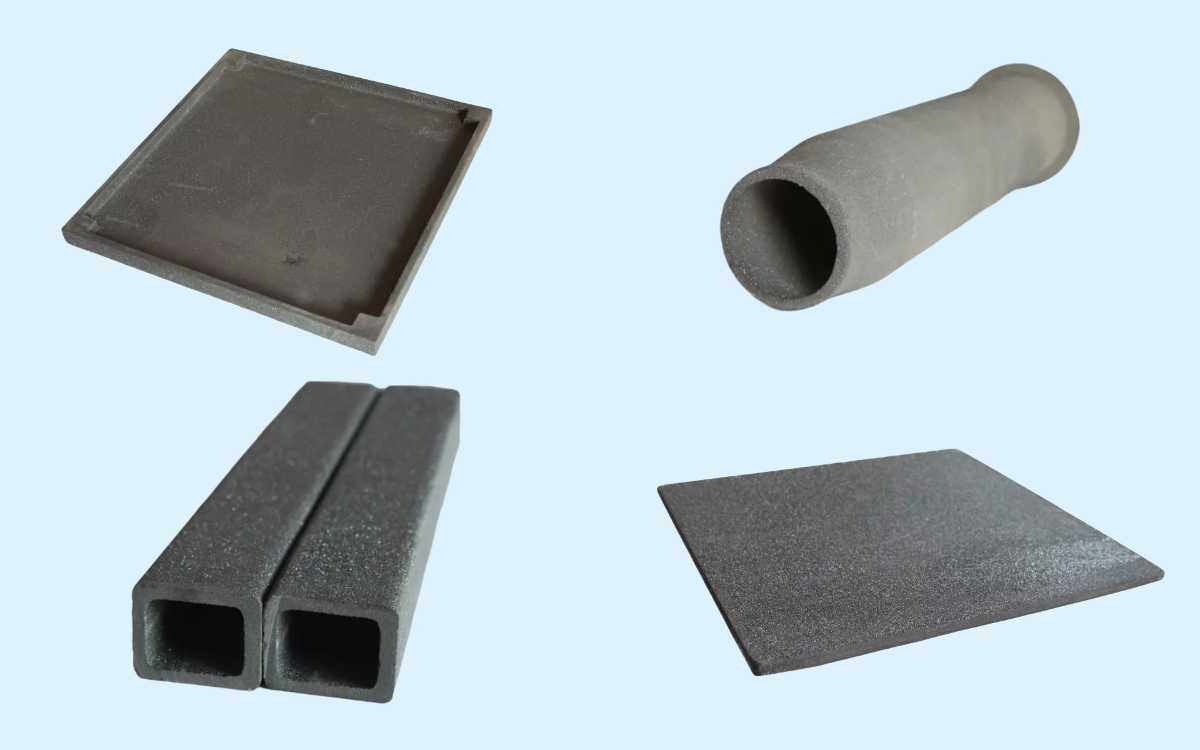
Product Parameters
| Index |
NSIC
(silicon nitride combined with silicon carbide)
|
SISIC
(reaction sintered silicon carbide)
|
RSIC
(recrystallized silicon carbide)
|
| Bulk density(g/cm³) | 2.75-2.82 | >3.02 | 2.60-2.74 |
| Porosity (%) | 10-12 | <0.10 | 15 |
| Compression strength(MPa) | 600-700 | / | ≥600 |
| Bending strength(MPa) | 250(20℃) | 250(20℃) | 90-100(20℃) |
| 160-180(1100℃) | 280(1200℃) | 100-120(1100℃) | |
| Young's modulus(GPa) | 220-260 | / | 280(20℃) |
| Thermal conductivity(W/MK) | 15(1200℃) | 45(1200C) | 26(1200℃) |
|
Thermal expansion(20-1000℃)
10-k¹
|
5.0 | 4.5 | 4.8 |
| Max.working temperature(℃) | 1500 | 1380 | 1650 |
| PH Resistanced | / | EXCELLENT | 1-14 |
| Moh's scale of thermal expansione | / | 13 | 0 |
| Si₃N:(%) | 20-40 | / | / |
| a-SIC(%) | 60-80 | / | 98.5 |
Tell us your needs, we have a Technical Consultant to provide you with Ceramic Solutions, click to consult!